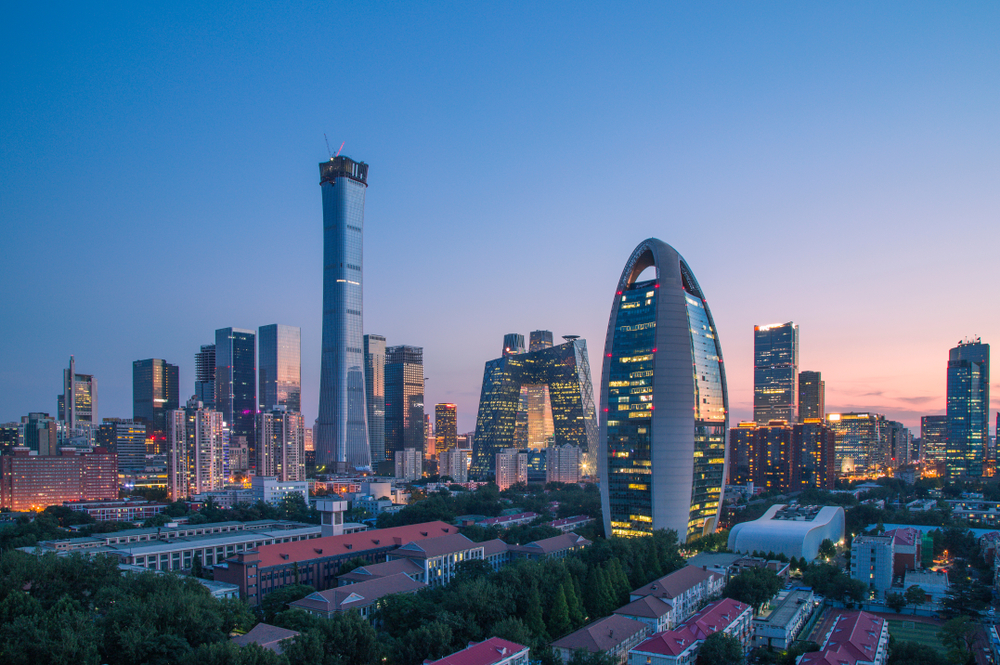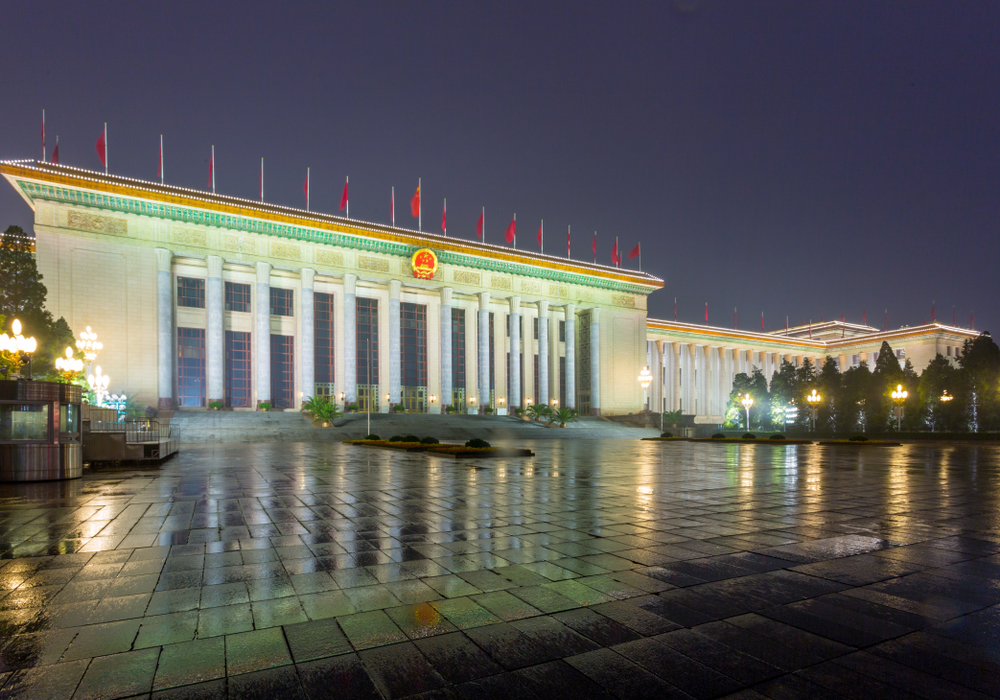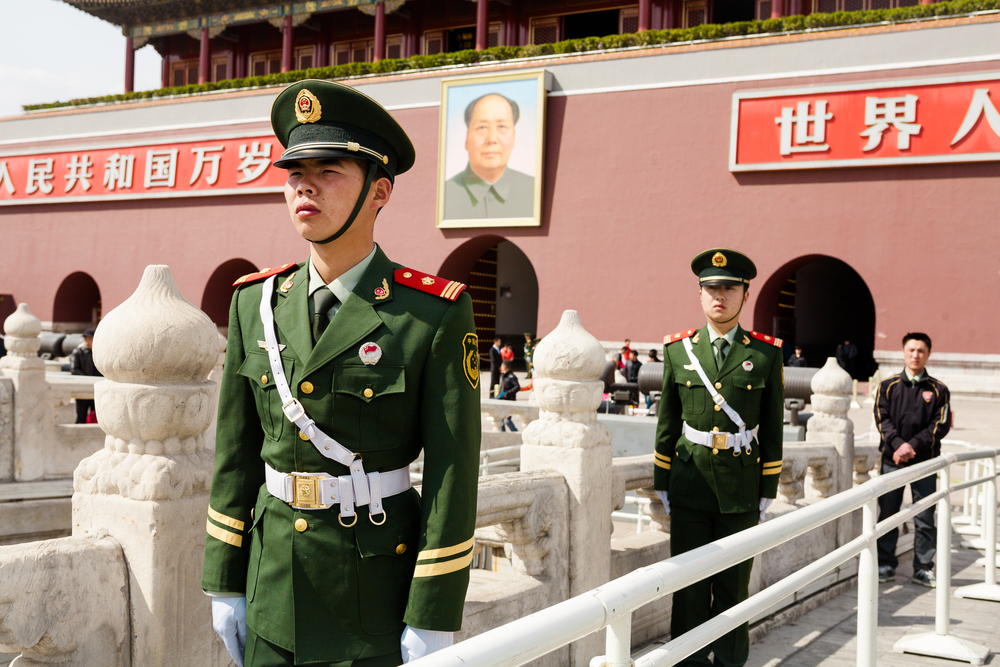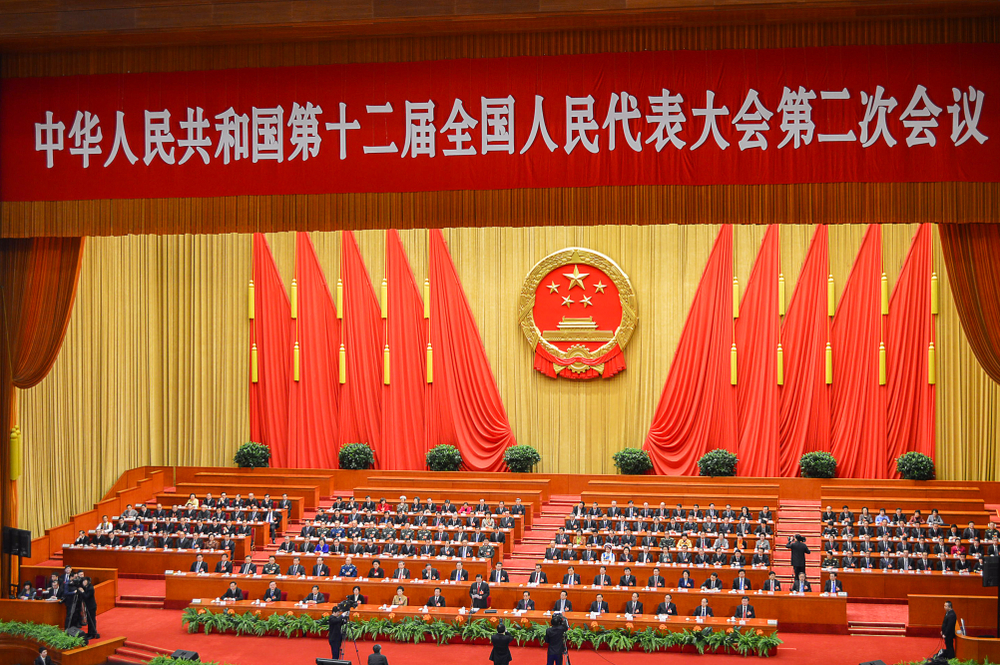Government Overview
Country
Local Long Form: Zhonghua Renmin Gongheguo
Local Short Form: Zhongguo
Etymology: English name derives from the Qin (Chin) rulers of 3rd century BCE, who comprised the first imperial dynasty of ancient China. The Chinese name Zhongguo translates as "Central Nation" or "Middle Kingdom."
Capital
Beijing: The Chinese meaning is "Northern Capital."
Geographic coordinates: 39 55 N, 116 23 E
Time Difference: UTC+8 (13 hours ahead of Washington, DC, during Standard Time)
Independence
Date: 1 October 1949 (People's Republic of China established). Notable earlier dates: 221 BC (unification under the Qin Dynasty), 1 January 1912 (Qing Dynasty replaced by the Republic of China).
Constitution
History: Several previous; last promulgated 4 December 1982.
Amendments: Proposed by the Standing Committee of the National People’s Congress or supported by more than one-fifth of the National People’s Congress membership. Passage requires more than two-thirds majority vote of the Congress membership. Amended several times; last in 2018 (2018).
Legal System
Civil law influenced by Soviet and continental European civil law systems; legislature retains power to interpret statutes
Citizenship
Citizen By Birth: No
Citizen By Descent: At least one parent must be a citizen of China.
Dual Citizenship Recognized: No
Residency requirement for Naturalization: While naturalization is theoretically possible, in practical terms it is extremely difficult. Residency is required but not specified.
Suffrage
Suffrage: 18 years of age, universal
Executive Branch
Chief of State: President
Head of Government: Premier
Cabinet: State Council appointed by National People's Congress
Description: The Chinese premier is the top administrator of the Chinese civil bureaucracy. In practice, the president of China is the most powerful figure, in that the president is general secretary of the Communist Party of China and chairman of the Central Military Commission. The president and vice president are indirectly elected by National People's Congress for a five-year term, but can be elected for an unlimited number of terms. The premier is nominated by the president and confirmed by the National People's Congress.
Legislative Branch
Description: Lawmaking authority is vested in the unicameral National People's Congress (Quanguo Renmin Daibiao Dahui). The congress has a maximum of 3,000 seats with members indirectly elected by municipal, regional, and provincial people's congresses, and the People's Liberation Army. Members serve five-year terms. In practice, only members of the Chinese Communist Party (CCP), its eight allied independent parties, and CCP-approved independent candidates are elected.
Judicial Branch
Description: The highest judicial body is the Supreme People's Court. It consists of more than 340 judges, including the chief justice and 13 grand justices, and is organized into a civil committee and tribunals for civil, economic, administrative, complaint and appeal, and communication and transportation cases. The chief justice is appointed by the People's National Congress and is limited to two consecutive five-year terms. Other justices and judges are nominated by the chief justice and appointed by the Standing Committee of the People’s National Congress for terms the congress determines. Subordinate courts include the Higher People's Courts, Intermediate People's Courts, District and County People's Courts, Autonomous Region People's Courts, International Commercial Courts, and Special People's Courts for military, maritime, transportation, and forestry issues.
Copyright © 1993—2025 World Trade Press. All rights reserved.

 China
China 


